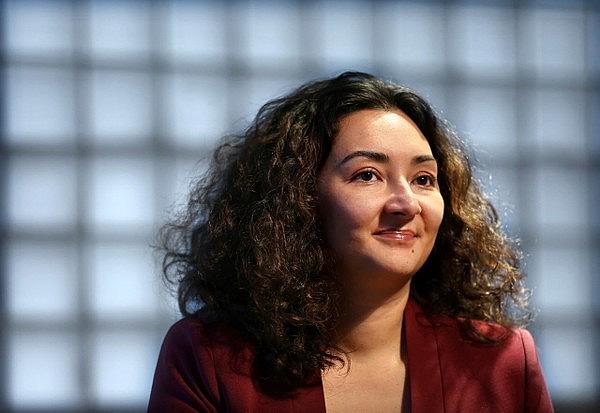Empowering Youth, Exploring Justice founder says there's "power" in hearing young voices
This reporting is supported by the University of Southern California Center for Health Journalism National Fellowship.
Other stories in the series include:
Dear Cleveland: Help us improve police relations and our "life skills"
Dear Cleveland: We're ready to talk, will you take us seriously?
Dear Cleveland: To learn, you first have to listen
Dear Cleveland: Seeking young voices on life in the city and how to make it better

Mai Moore, the founder of Empowering Youth, Exploring Justice, created the Impact 25 Youth Council. The group will present their solutions to Cleveland Police Chief Williams and members of the Cleveland Indians Monday.. The work was supported by Partnership for A Safer Cleveland and made possible by the Larry Doby Fund. (Lisa DeJong/The Plain Dealer)
CLEVELAND, Ohio -- In the weeks before the Empowering Youth, Exploring Justice (EYEJ) Impact 25 Youth Council first met, Mai Moore was worried.
She had concerns that the young council members she'd recruited to meet over several months, and then "pitch" solutions to violence and other issues to Cleveland Police Chief Calvin Williams and other civic leaders would feel let down if their ideas fell victim to barriers that too often stymie social change.
The 18 council members had incredibly personal reasons for joining the council. They'd lost loved ones to violence, been victims of abuse, experienced police bias and struggled to get mental health services and the educations they thought they deserved. (The council started with 19 members but one dropped out.)
"The biggest worry that I have is that we end up setting these kids up for failure," Moore said before the first meeting.
Then Moore reminded herself of the reasons she quit her money-making job and created EYEJ in 2013 the first place. (With lots of support from church, community members and volunteers.)
It was about empowering young people to discuss social justice issues, to make their voices heard and to connect with diverse adults who would support them in making change. That's what EYEJ aims to do as a part of its Discussion Series that brings conversations on topics like healthy eating, civil rights, stress and finances into three Cleveland Metropolitan School District schools, reaching 1,000 students.
Creating the Impact 25 Youth Council was a next step that could allow young people to take their concerns directly to leaders and also help them think about what types of solutions might work, she said.
The process had its ups and downs. It was hard for the students to pick a problem that mattered the most -- there were so many. And solutions were difficult to agree on. The young people worked through it.
By the group's final meeting on April, Moore's doubts were erased. No results are guaranteed. But the process, the one Moore urged the council to trust, worked.
"I want you all to know, no matter what happens, you've worked hard," she told them.
"You are using your voices to tell your community what you want. That's powerful."
[This story was originally published by The Plain Dealer.]
